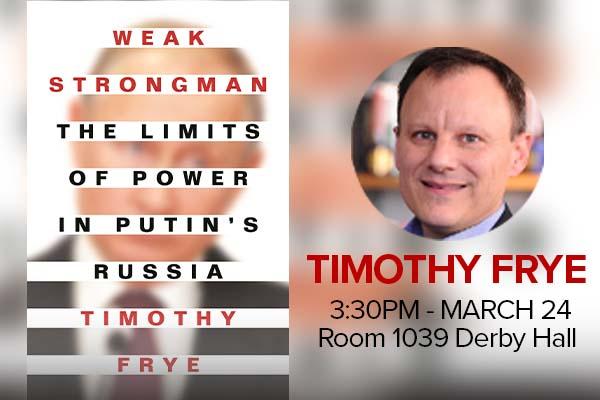
There are few leaders today that attract more international attention and speculation than Vladimir Putin. Discussions about his aspirations, various motives, and hold on power in Russia are common and often intense. Professor Timothy Frye explores these in depth in his book Weak Strongman: The Limits of Power in Putin’s Russia (Princeton University Press, 2021).
In this book, Frye argues that we miss a great deal when we focus solely on Putin or Russian exceptionalism and compares Putin to other personalistic autocratic leaders. Bringing to bear both an in-depth familiarity with contemporary Russia and an expert command of the literature in comparative politics, Frye makes an impressive contribution to our understanding of Putin’s sources of power and the tradeoffs he faces in sustaining them. This sheds important light on key questions such as: How popular is Putin? How does he manage the instruments of control in Russia? What are the prospects for change in Russia? Is Russian propaganda effective? Why are relations with the West so fraught? In his talk for the Mershon center, Frye will discuss these matters and the role he sees for scholars and scholarship in this era of intensely politicized discourse.
Join us Thursday, March 24 from 3:30-5:00 p.m. EST for this virtual discussion. Register below.
